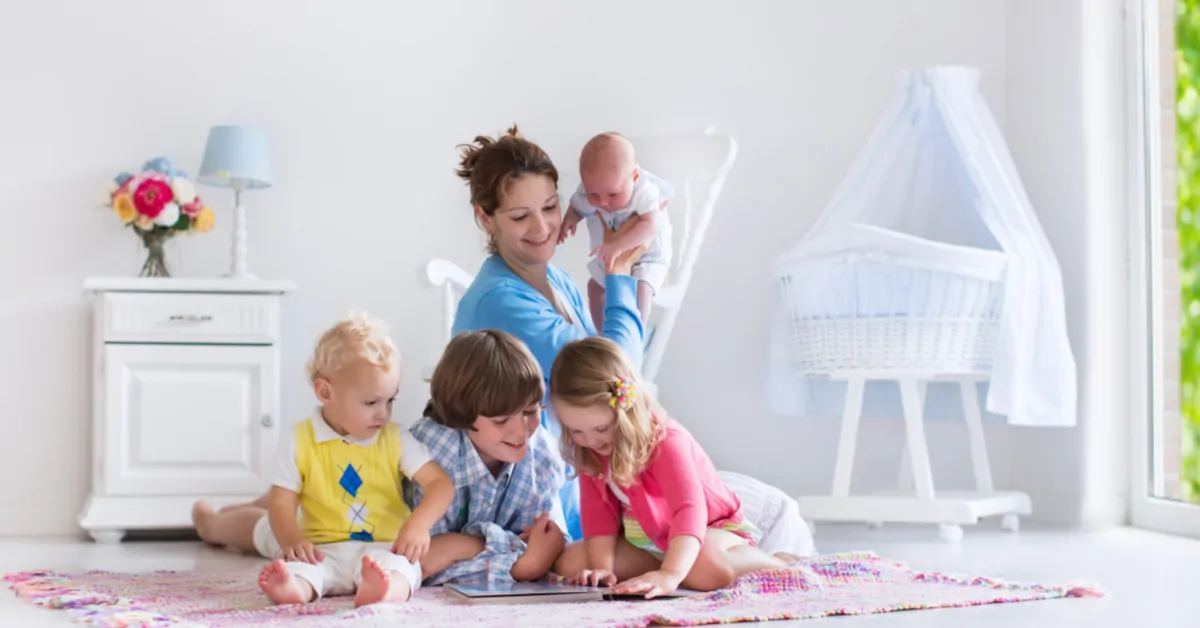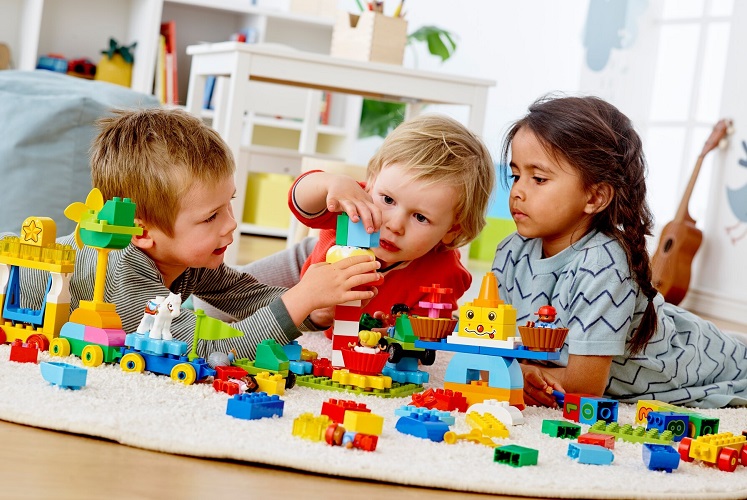Mastering Multi-Kid Household Management: Expert Insights
To master managing a multi-kid household, establish daily routines for organization and less stress. Manage sibling conflicts by teaching effective communication and conflict resolution skills. Encourage individuality by celebrating differences and fostering independence. Use clear communication strategies to address family needs and conflicts. Balance quality time by prioritizing meaningful interactions and one-on-one moments. Organize household chores with chore charts and teamwork. Support each child’s diverse needs by balancing priorities and time management. Promote teamwork and cooperation through collaborative activities. Cultivate a positive family environment with open communication and nurturing atmosphere. Embrace these strategies for a harmonious and efficient household.
Key Takeaways
- Establish consistent routines for organization and stress reduction.
- Teach conflict resolution strategies and promote positive communication.
- Encourage individuality and celebrate each child’s uniqueness.
- Prioritize quality time and meaningful interactions over quantity.
- Implement a clear chore system to foster teamwork and shared responsibility.
Establishing Daily Routines

When managing a household with multiple children, establishing consistent daily routines is key to maintaining organization and reducing stress for both you and your kids.
Morning routines set the tone for the day. Start by planning out breakfast and getting everyone ready for school. Guarantee backpacks are packed the night before to avoid morning chaos.
Bedtime schedules are equally important. Establish a calming bedtime routine to help kids wind down, such as reading a book or listening to soft music.
Meal planning can save time and reduce the last-minute scramble to figure out dinner. Create a weekly meal plan and involve the kids in meal prep to teach them valuable skills.
Homework routines are essential for academic success. Designate a specific time and place for homework each day to help children focus and develop good study habits.
Managing Sibling Conflicts
To foster a harmonious home environment, effectively managing sibling conflicts is key in promoting positive relationships and peaceful interactions among your children. Sibling rivalry is a common occurrence in multi-kid households, but conflict resolution strategies can help navigate these challenging moments.
When conflicts arise, encourage open communication by actively listening to each child’s perspective. Validate their feelings and guide them towards finding peaceful solutions. Teach your children problem-solving skills, such as taking turns, compromising, or brainstorming together to reach a resolution that satisfies everyone involved.
Setting clear expectations and boundaries can also prevent conflicts from escalating. Encourage empathy by helping your children understand each other’s feelings and perspectives. Praise positive interactions and behaviors to reinforce healthy ways of relating to one another.
Encouraging Individuality

Support your children’s growth and development by encouraging their unique interests, talents, and personalities within the multi-kid household. Fostering independence in each child is vital for their overall well-being. Allow them the space to explore their passions and make choices that align with their individuality. By nurturing uniqueness, you’re helping them develop a strong sense of self and confidence in their abilities.
Celebrating differences among your children is key to creating a harmonious and accepting environment. Embrace the diversity of personalities, strengths, and weaknesses within your household. Encourage your children to appreciate each other’s differences and learn from one another. This not only promotes tolerance but also fosters a sense of inclusivity and respect among siblings.
Effective Communication Strategies
When managing a multi-kid household, clear family meetings and listening with empathy are key communication strategies to maintain harmony and understanding among siblings.
Setting aside time for family discussions can help address any issues or concerns that may arise, fostering a supportive and open environment for everyone in the household.
Clear Family Meetings
Start by setting aside dedicated time for clear family meetings to enhance communication within your multi-kid household. Establishing regular meetings helps in setting expectations and creating agendas for discussions. Encourage all family members to share responsibilities during these meetings, making everyone feel involved and valued.
When conducting family meetings, focus on problem-solving as a team. Address any conflicts or challenges that arise in a constructive manner. By involving everyone in finding solutions, you foster a sense of unity and cooperation among siblings. Remember, these meetings are a platform for open and honest communication, so make sure that each child has the opportunity to express their thoughts and feelings.
To make these gatherings effective, consider rotating who leads the meetings or assigns roles to each family member. This not only encourages leadership skills but also ensures everyone has a chance to participate actively.
Listening With Empathy
Practice active listening with empathy to foster deeper connections and understanding within your multi-kid household. When your child comes to you with a problem or a story, give them your full attention. Put away distractions, make eye contact, and show genuine interest in what they’re saying. By actively listening, you not only hear their words but also understand their feelings and emotions.
Offering emotional support is essential in a multi-kid household. Validate your children’s feelings and let them know that you’re there for them. Empathize with their struggles and celebrate their victories. Create a safe space where they feel comfortable expressing themselves without fear of judgment.
Balancing Quality Time

In order to maintain a healthy balance of quality time in a multi-kid household, prioritizing meaningful interactions over quantity is vital. Quality time bonding is essential for nurturing strong sibling relationships and fostering a sense of unity among your children.
Encourage family activities that everyone can enjoy together, such as game nights, movie marathons, or outdoor adventures. These shared experiences create lasting memories and strengthen the bond between siblings.
At the same time, it’s important to recognize the value of individual connections. Setting aside one-on-one time with each child allows for deeper conversations and personal bonding. Whether it’s reading a book together, going for a walk, or simply having a heart-to-heart chat, these moments help children feel seen, heard, and valued.
Finding the right balance between family time and individual attention can be challenging, but by being intentional with your time and making the most of every moment, you can create a harmonious environment where both quality time bonding and individual connections thrive.
Organizing Household Chores
To effectively manage household chores in a multi-kid household, establishing a clear and organized system is crucial. Chore charts can be a game-changer, laying out tasks and schedules for each child. Consider using a whiteboard or an app to make it easily accessible and interactive. Encourage teamwork by having siblings work together on certain chores, fostering a sense of collaboration and shared responsibility.
Rotate responsibilities regularly to prevent monotony and allow each child to experience a variety of tasks. This not only keeps things interesting but also guarantees that everyone learns different skills.
Acknowledge their efforts with rewards, whether it’s extra screen time, a special treat, or a fun outing. Rewards can motivate kids to complete their chores diligently and instill a sense of accomplishment.
Supporting Each Child’s Needs
Now, let’s talk about supporting each child’s needs in your multi-kid household.
It’s essential to provide individualized attention to every child while balancing their diverse needs.

Individualized Attention for All
Addressing each child’s unique needs and interests is essential for fostering a positive and supportive environment in a multi-kid household. Personalized activities tailored to each child can help meet their individual requirements and nurture their talents.
To strengthen sibling bonds, encourage activities that cater to their shared interests, promoting cooperation and camaraderie among them. By providing customized attention, you acknowledge each child’s distinct personality and preferences, fostering a sense of belonging within the family dynamics.
Consider setting aside special one-on-one time with each child to connect on a deeper level and understand their emotions and aspirations. This individualized attention demonstrates your commitment to supporting them and builds trust within the family unit.
Encourage open communication where each child feels heard and valued, creating a safe space for them to express themselves freely. Remember, recognizing and catering to each child’s needs not only strengthens your relationship with them but also promotes a harmonious atmosphere in your multi-kid household.
Balancing Diverse Needs
In a multi-kid household, achieving a balance in supporting each child’s diverse needs is essential for fostering a harmonious and nurturing environment. Time management plays an important role in this balancing act. Prioritizing needs based on urgency or importance can help you address individual requirements effectively. By allocating specific time slots for each child, you can make sure that everyone feels valued and attended to.
Flexibility and adaptability are key when it comes to meeting the diverse needs of your children. Understand that each child is unique and may require different approaches. Stay open to adjusting your plans and strategies to cater to these differences. Being flexible allows you to better respond to unexpected situations and changes in your children’s needs.
Promoting Teamwork and Cooperation

Encouraging your children to work together as a team can greatly enhance the harmony and efficiency within your multi-kid household. Introducing teamwork activities, cooperation exercises, collaborative projects, and unity-building strategies can foster a sense of togetherness and shared responsibility among your kids.
Start by assigning tasks that require collaboration, such as cleaning up together after meals or organizing their shared play area. Encourage them to communicate effectively, listen to each other’s ideas, and problem-solve as a team.
Team-building games or challenges can also be a fun way to promote cooperation. Consider activities like building a puzzle together, creating a family art project, or even organizing a mini-Olympics in your backyard.
Cultivating a Positive Family Environment
Creating a nurturing and positive atmosphere within your family is essential for fostering strong bonds and promoting overall well-being among family members. To cultivate a positive family environment, focus on creating harmony and fostering connections.
Start by setting aside dedicated family time where everyone can engage in activities together, such as game nights or outdoor adventures. Encourage open communication by actively listening to each family member’s thoughts and feelings, creating a safe space for sharing. Express appreciation and offer praise to reinforce positivity within the family unit.
Establishing routines and traditions can also contribute to a sense of stability and togetherness. Remember to prioritize self-care for yourself and your children, as a well-supported parent can better nurture a positive atmosphere at home. By consistently working towards creating a harmonious and connected family environment, you lay the foundation for lasting bonds and cherished memories.
Frequently Asked Questions
How Can I Handle Jealousy Between Siblings?
Handling jealousy between siblings involves encouraging coping mechanisms and open communication. Building empathy through family bonding activities can help siblings understand each other’s feelings. Addressing issues calmly and fostering a supportive environment is key.
What Should I Do if One Child Feels Left Out?
When one child feels left out, focus on building inclusivity through open communication. Create bonding activities that involve all kids. Managing expectations by acknowledging each child’s unique needs can help foster a more harmonious family environment.
Is It Normal for Siblings to Have Different Interests?
It’s totally normal for siblings to have different interests. Embrace these differences by encouraging individuality and nurturing diverse passions. Celebrate each child’s uniqueness while fostering unity through shared experiences and mutual respect.
How Do I Address Favoritism Accusations?
When addressing favoritism accusations, prioritize open communication with your kids. Building trust through honest conversations and acknowledging their feelings can help dispel misunderstandings. Show equal love and support to each child.
Can Sibling Rivalry Have Long-Term Effects on Children?
Sibling relationships can influence children’s long-term psychological well-being. Address sibling rivalry by encouraging communication, respect, and shared experiences. Foster a strong sibling bond through family activities, conflict resolution skills, and individual attention to each child’s needs.
Conclusion
To sum up, mastering the management of a multi-kid household is no easy feat, but with dedication and patience, you can create a harmonious and loving environment for your children.
Remember to establish routines, encourage individuality, and promote teamwork.
Effective communication and support for each child’s needs are key to a positive family dynamic.
By implementing these strategies, you can navigate the challenges of a multi-kid household with grace and confidence.
You’ve got this!

Hey there! 👋 I’m a proud mom and passionate writer, sharing my parenting journey. 📝 Join me as I navigate the ups and downs of motherhood, offering tips, advice, and a sprinkle of humor along the way. 🌟







